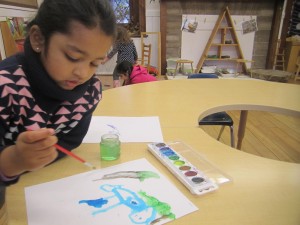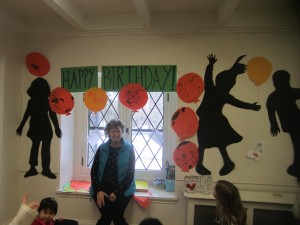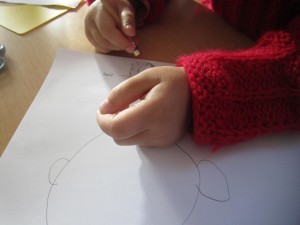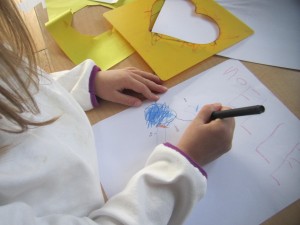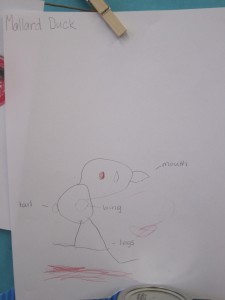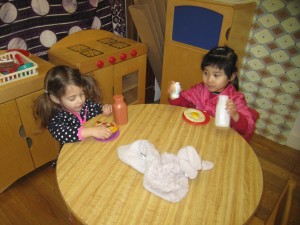Why do Birds have wings?
Cognitive growth is supported by age-appropriate attention to all areas of early childhood development – including social, emotional and physical progress. In this spirit we continue to find the balance in your children’s lives at school. We are comfortably into the rhythms and routines of the day, maintaining a predictable structure while creating a flexible and safe climate for accepting “change” such as weather delays, substitutes and visitors. We also introduce new concepts with these aspects of the whole child in mind. Group work and social development, individual skills of waiting for one’s turn, focus and follow through, and dexterity and stamina go hand in hand with cognitive development.
Each morning this week we saw purposeful, energetic buzz as your children chose centers and worked with one another, and sometimes independently. The transition from arrival to centers is wonderful to see. Your children go directly to the writing center, working on their books or dictionary pages; to the table where they create watercolors; to our sensory table; and to the puzzles or blocks areas. Every day children practice these routines. They find new meaning, develop social skills, build on their self-confidence and stretch themselves to try new things.
When we come together in circle, where we now sit for longer periods, your children are genuinely feeling a sense of community and wellbeing. We find new ways to greet one another, and we are well into the rhythms of counting days in school, discussing the weather, what will happen each day and sharing a story, counting, sequencing, finding patterns, making predictions, singing and/or saying the days of the week or the alphabet.
It was a special day this week as we joined with Kindergarten to wish Ms. Patel a very Happy Birthday!
Renowned child psychologists such as Vygotsky explain that young children’s minds are vessels to be filled, but that they only really understand information that their minds at a given moment are able to receive. Thus we may see children listing the names of continents or reciting other facts, but they do not necessarily understand the underlying concepts. This is an important reason why we take our cues from the children, as in what they want to learn about topics. We make careful observations about their understandings, we guide them with question starters, and break down their understandings into progressive stages. At BCD we also focus our conceptual growth with investigations about our immediate community and environment.
For those of you viewing this blog on your iphone or ipad, you can view the pictures here: https://www.flickr.com/photos/bcdtech/sets/72157647254977052/

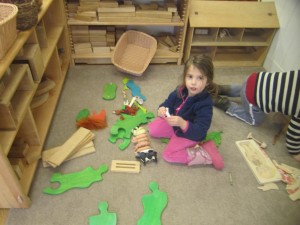
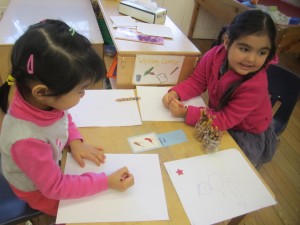
!["They [birds] need wings because if they don't have them they wouldn't be able to get anywhere."](https://berkshirecountryday.org/wp-content/bcdimg/2015/01/IMG_9348-e1422215404701-300x225.jpg)
